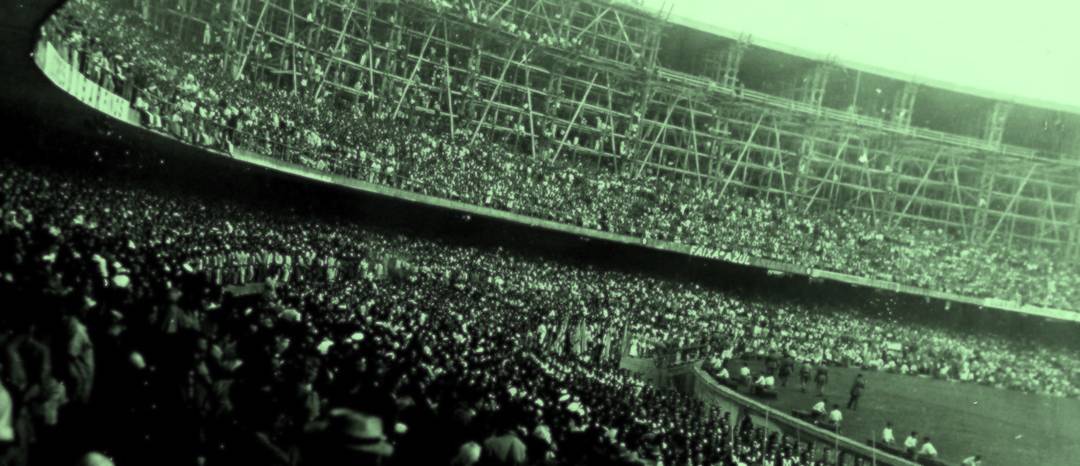This time last year, in an article entitled “Bom Senso F.C. & a battle for the soul of Brazilian football”, published on Brasil Wire, I wrote about the potential for a breakaway of Brasil’s major clubs from the Jurassic power structure that controls Brazilian football, headed by national and state federations.
In 1992, England’s largest clubs split from the Football League and created the Premier League: a standalone organisation that operated with the interests of clubs in mind. It a short time it became the richest league in world football. Brazilian clubs, by comparison, can claim to hold even more influence than their English counterparts (five teams in Brazil count their fan bases in the tens of millions – Flamengo, Corinthians, São Paulo, Palmeiras and Vasco da Gama), making the need for an independent league even greater.
So why haven’t Brasil’s largest clubs gone off on their own already? In some cases, the presidents of said clubs are also complicit in the corrupt framework of the Brazilian game and believe the sport is Doing Just Fine Thank You Very Much. Meanwhile, other officials conform with the existing structure for fear of losing the political support of the dinosaurs that control things behind the scenes at most major clubs.
My article from last year dealt with a particular dispute between the Rio de Janeiro state football federation (Ferj) and two of its notable members, Flamengo and Fluminense. The conflict has since developed (albeit at a crawling pace) and both clubs are about to carry out, in part, the threat they made in January 2015.
Rivals on the football pitch, Flamengo and Fluminense have united to help create an independent, club-organised competition – the Primeira Liga (fittingly, “Premier League”) – which begins this evening. However, despite having promised to boycott this year’s Rio de Janeiro state championships, both clubs will compete in the tournament after all, using their first-choice players.
The Primeira Liga, also known as the (admittedly less catchy) Copa Sul-Minas-Rio, is a revival of the Copa Sul-Minas, which was held at the beginning of the 2000s and included the best teams from the states of Rio Grande do Sul, Paraná, Santa Catarina and Minas Gerais. Flamengo and Fluminense, whose rebellion sparked the rebirth of the tournament, have also been invited.
A total of 12 teams will take place, split into three groups of four. The winners of each group (along with the best second-place team) qualify for the final knockout stage. The first round of games begins this evening, with the standout fixture being Atlético Mineiro against Flamengo.
Predictably, as it presents a genuine threat to the hegemony of the state football federations, the Primeira Liga has started a messy legal row between its member clubs, Ferj and the Brazilian football confederation (CBF).
Initially, with the CBF facing far more pressing issues of its own (former president José Maria Marin is sitting in a US jail, while his successor Marco Polo Del Nero is under investigation by the FBI) and receiving assurances that the clubs involved would not withdraw from their respective state championships, the national confederation largely left the Primeira Liga alone. However, this apparent fragility of the CBF has been preyed upon by Ferj, who is desperate to see the tournament cancelled.
Ferj’s president Rubens Lopes, in an interview with Globoesporte, was emphatic in his condemnation of the Primeira Liga, referring to the competition as “anarchist” and the participating clubs as “elitist” and “militiamen”. “They will only play [the Primeira Liga] if they really want to start a war. And war, my friend, only ends in casualties.”
Cowed by Lopes and his principal ally, Vasco da Gama president Eurico Miranda, the CBF signed a declaration on Monday which banned the Primeira Liga from taking place. However, the confederation’s threat to punish the participant clubs stands on shaky legal ground. The Primeira Liga was intelligently designed to have its first round take place in January, within Brazilian football’s pre-season. As a result, neither the CBF or Ferj have the authority to cancel the two opening matchdays, seeing as the tournament is technically non-competitive.
The likelihood of punishments being handed out to all 12 of the Primeira Liga’s members is also slim. The vast majority of the teams involved are major clubs in Brazilian football, including Flamengo, the best supported team in the country. Punishing these clubs would cause the public’s opinion of the CBF to plummet even further. As a way of demonstrating their influence, the clubs of the Primeira Liga have even begun mobilising their social media followings to rally behind the new competition and against the CBF’s decision, launching the hashtag #JuntosPelaPrimeiraLiga (United for the Primeira Liga).
Contrary to the title of this post, I do not believe this to be Brasil’s Premier League, at least not yet. There is still much to be done and no guarantee the clubs will be able to work together, as signalled by the resignation of Alexandre Kalil, the Liga’s first elected CEO and former president of Atlético Mineiro, claiming that five member clubs “plotted” to have him removed. Furthermore, for the league to gain any nationwide appeal, São Paulo’s Big Three (Corinthians, São Paulo and Palmeiras) must get involved. When compared to other parts of the country, the São Paulo state championship is still a relatively profitable tournament for its major clubs, despite having lost most of its credibility.
Either way, the Primeira Liga is a step in the right direction, while its timing (football fans are hungry for the season to start up again) and the quality of teams involved could make it a huge success.

Image credit: Nelson Perez/Fluminense FC

